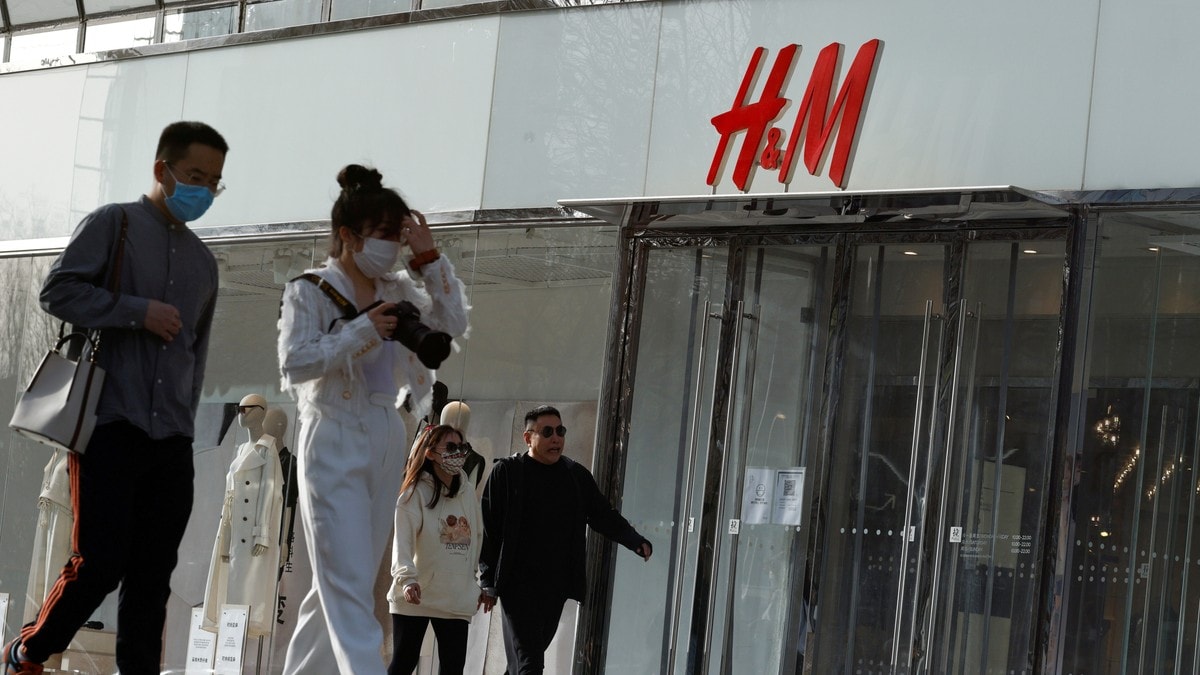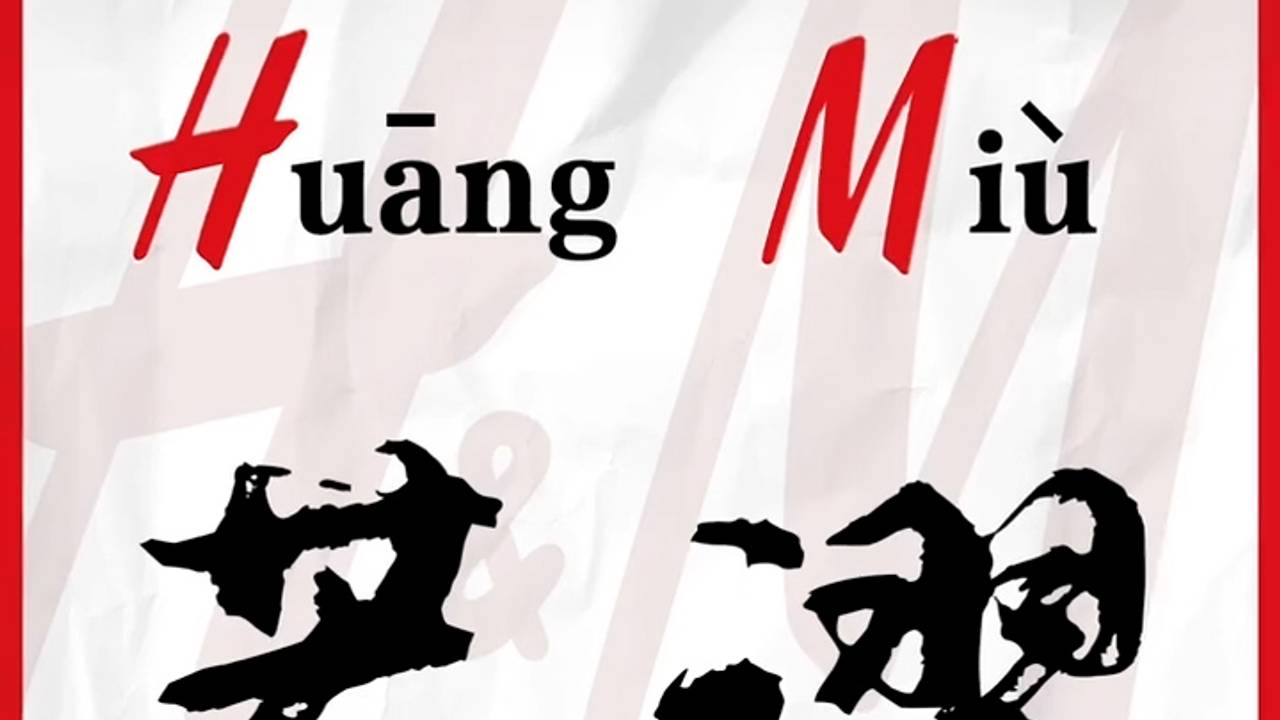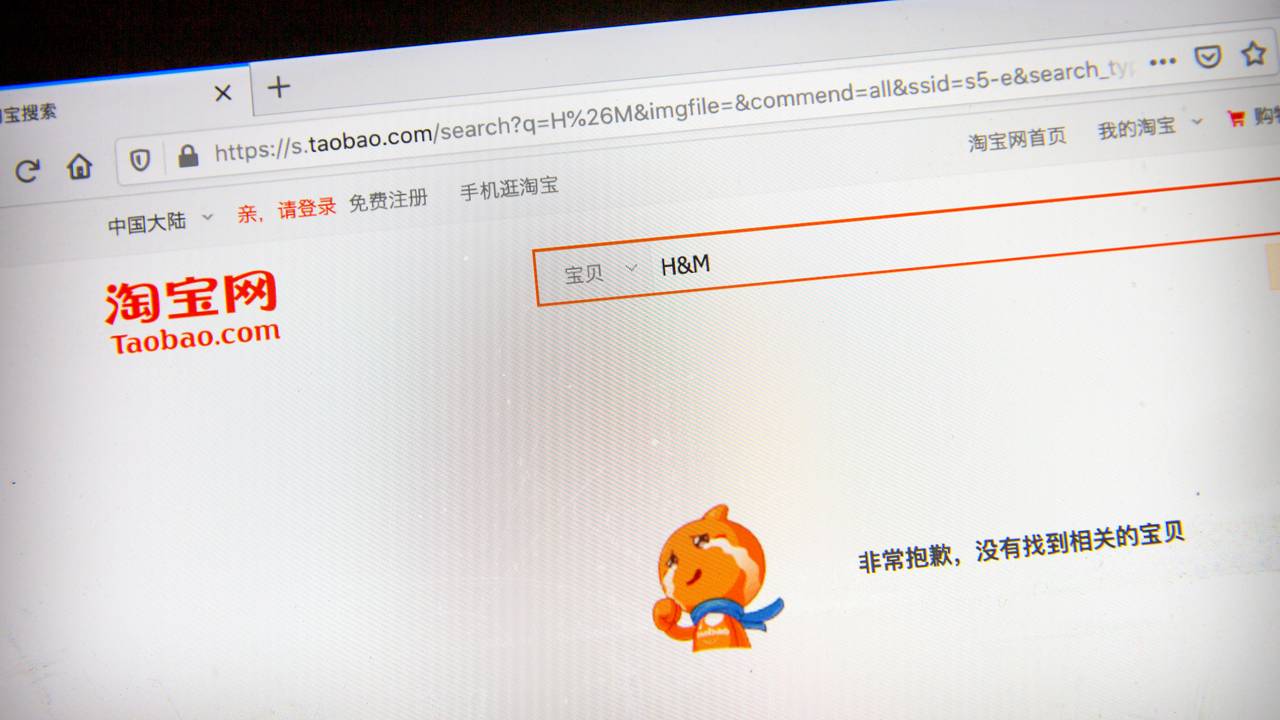
[ad_1]
Two women dance outside a Hennes & Mauritz store in Chongqing. They are dressed in traditional clothing and apparently belong to the Uighur ethnic minority in Xinjiang, western China.
They hand out cotton to passersby.
The dance is a demonstration, a protest against the Swedish garment giant who does not want to buy cotton from Xinjiang.
The reason is that the company is not sure whether the cotton is produced through forced labor. This has fired minds across China and customers are absent.
The recording is taken from Douyin, the Chinese version of TikTok, where it has been shared by millions, including regional authorities across the country.
Now the Swedish clothing chain wants to rebuild its customers’ trust in China. In a statement on Wednesday, the company emphasized the importance of the Chinese market for them.
“We are committed to regaining the trust of our customers, colleagues and business partners in China,” the statement said.

Ridiculous: A meme playing with the initials of H&M is shared on social media Huang Miu means ridiculous.
Mocks H&M
Last week, the Communist Youth League of China and government news agencies launched calls against H&M and several other international clothing brands. They did so by sharing a series of memes and topics that made fun of companies.
One of them is based on the abbreviation of the name H&M, which in Chinese can mean the word Huang Miu and means ridiculous.
The reason for all this is that the Chinese authorities say they are helping the people of Xinjiang to have a better life with retraining camps. While the authorities in western countries say that Muslims are being held in concentration camps and that ethnic genocide is taking place.
Chinese Foreign Ministry spokesman Zhao Lijian calls the whole affair a major conspiracy by the United States and the West.
“They are trying to stop China’s development by destabilizing Xinjiang, and knocking down cotton is part of this conspiracy,” Zhao said on Monday.

REMOVED FROM INTERNET IN CHINA: Chinese Taobao online store does not give any results when searching for H&M.
Photo: Mark Schiefelbein / APPhoto: Mark Schiefelbein / AP
Inflamed case
In Beijing, NRK is trying to get in touch with Chinese customers outside the trendy Taikoo Li mall.
One person answers questions, but regrets it and asks that we delete the recording.
Before we can ask any more, we are surrounded by policemen.

NRK Beijing correspondent Kjersti Strømmen was detained by Chinese police as she went to interview clients outside of H&M.
Photo: Kjersti Strømmen / NRK
Our papers are checked and photographed. Two police patrol cars arrive, and after many phone calls have been reported and the summoned superiors have been informed, we are allowed to leave with a warning: the sidewalks, (they tell us), must be traveled, it is not a place to conduct an interview.
The foreign press corps in China is allowed to work in public places, but the police often take a different form.
Hennes & Mauritz’s case is also inflamed.

The facade of the H&M store in the Taikoo Li Mall in Beijing.
Photo: Kjersti Strømmen / NRK
Close the doors
We move to another part of the city, where we get people to talk, without interruption.
Lin Xiaoxi is dressed in Gucci and says that she usually buys what she thinks is good, but now, for patriotic reasons, she doesn’t want to buy brands that boycott Xinjiang cotton. At least not until they give him an apology.
We asked if you know why Hennes & Mauritz is skeptical of Xinjiang cotton, but you don’t know and you haven’t heard the forced labor allegations.
Several NRKs speak up to say that they do not accept foreign brands taking action based on suspicion or hearsay, but must present evidence.
A man dressed in a shirt and pants does not say his name, but says that he thinks it has cost him too much, that the Chinese reactions are excessively strong.
– I love my country, but this is too strong a diet, he says.
Several shopping malls have closed their doors to Hennes & Mauritz, which is now struggling to maintain its customer base in China.

Two women walk past one of the Swedish clothing chain’s stores in Beijing. March 25th.
Photo: Nicolas Asfouri / AFP
Choose Chinese brands
A woman named Gao is on her way to lunch with a friend, but takes the time to say that the aggravated situation has made many people realize that China has its own strong brands, which one can support, rather than foreign ones. .
– The case does not bother me so much that I get angry, but just as the company has the right to have an opinion, I also have the right to make my decisions, says Gao.
– I will not destroy stores, as someone has done, it is not necessary, but from now on I will show more interest in Chinese brands, he says.